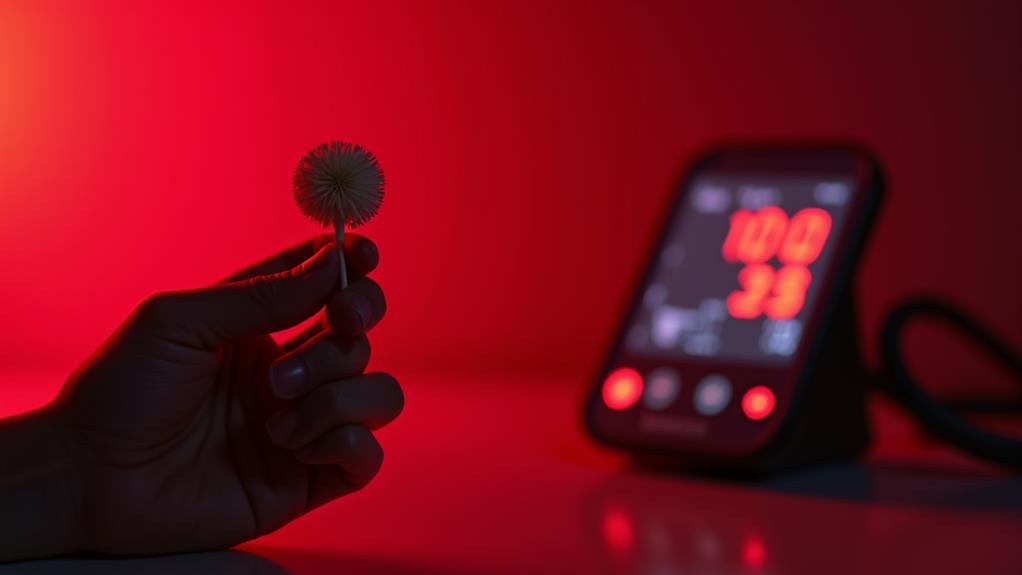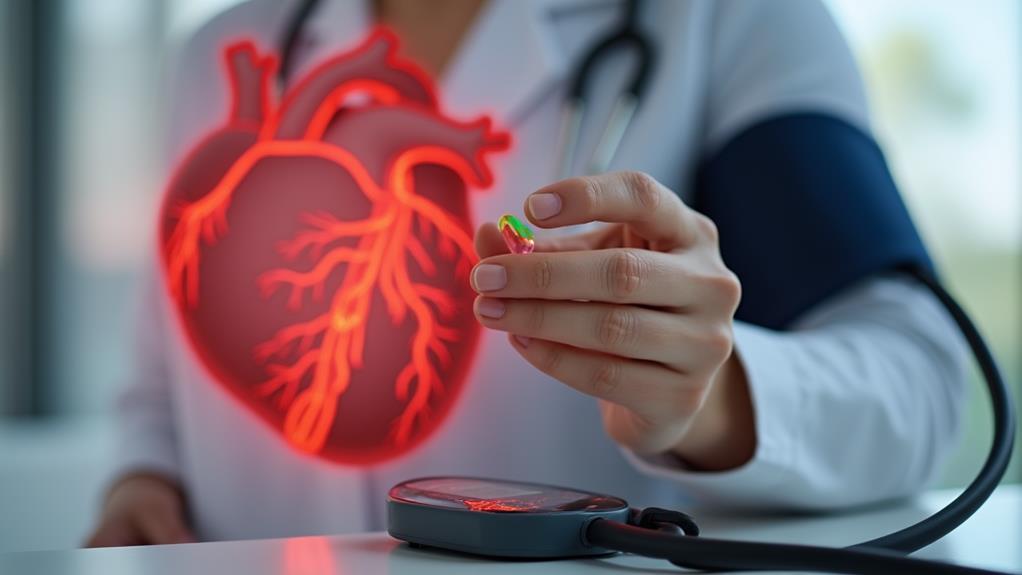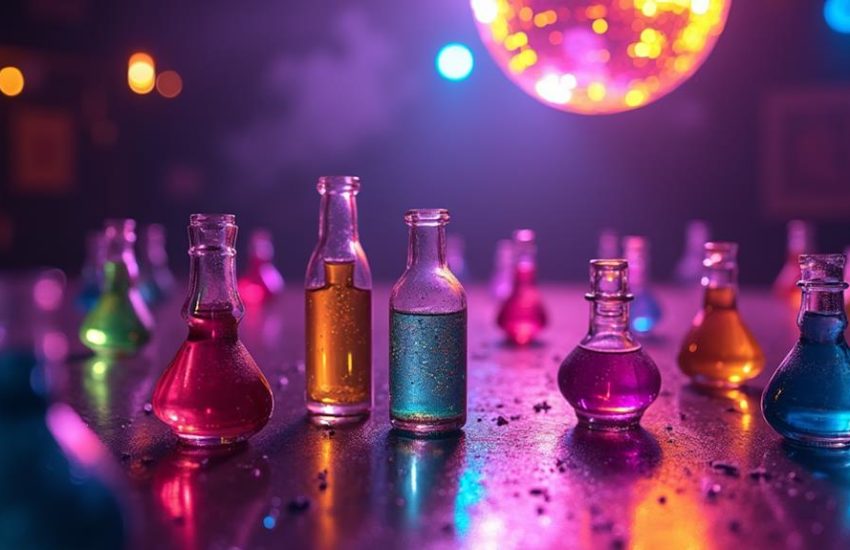Popped a Popper? You Wont Believe What Happens to Your Blood Pressure Next
Inhaling poppers triggers an immediate and dramatic drop in blood pressure within seconds. The alkyl nitrites in poppers cause rapid vasodilation, relaxing smooth muscles in blood vessels. This sudden decrease affects both systolic and diastolic pressure, potentially leading to dizziness or fainting. Although the effects are short-lived, lasting only a few minutes, they can pose significant risks, especially for individuals with pre-existing cardiovascular conditions. Repeated use may result in prolonged low blood pressure and increased strain on the heart. Understanding the full range of cardiovascular impacts and potential long-term health consequences is essential for anyone considering or currently using poppers.
The Science Behind Poppers

Understanding the chemical composition of poppers is fundamental to grasping their physiological effects. Poppers typically contain alkyl nitrites, such as amyl nitrite or isobutyl nitrite. These volatile substances have been used recreationally for decades, with their popularity peaking in the 1970s and 1980s.
When inhaled, poppers trigger a rapid physiological response, primarily affecting the cardiovascular system. Nevertheless, many users are unaware that the inhaled chemical is not the same as the amyl nitrite used for angina treatment. This discrepancy raises concerns about the true contents and potential risks of poppers.
The historical context of poppers dates back to the 19th century when they were used to treat angina. Today, their recreational use is more common.
The chemical composition of poppers allows them to quickly enter the bloodstream through the lungs, causing smooth muscle relaxation and vasodilation. This leads to a sudden drop in blood pressure, accompanied by a rush of warmth and euphoria.
Understanding these mechanisms is vital for users to appreciate the potential risks and effects associated with popper use.
Immediate Effects on Blood Pressure

When a person inhales poppers, the immediate effect on blood pressure is dramatic and rapid. The acute response manifests as a sudden and significant drop in blood pressure, typically occurring within seconds of inhalation.
This vascular change is primarily owing to the rapid release of nitric oxide, which causes smooth muscle relaxation in blood vessel walls. Consequently, users experience widespread vasodilation, leading to a decrease in both systolic and diastolic blood pressure.
This effect can be particularly pronounced in individuals with pre-existing hypertension. The sudden drop in blood pressure may cause dizziness, lightheadedness, or even fainting in some users. Low blood pressure can lead to fainting or collapse.
It's important to note that although this immediate effect is temporary, lasting only a few minutes, frequent use can lead to more prolonged changes in cardiovascular function. Understanding these immediate effects is essential for those who choose to use poppers.
Short-Term Cardiovascular Risks

The immediate effects of poppers on blood pressure are just the beginning of potential cardiovascular risks. The sudden blood pressure fluctuations experienced during popper use can lead to short-term complications for the cardiovascular system.
Repeated use within a short period may cause prolonged periods of low blood pressure, potentially resulting in dizziness, fainting, or even loss of consciousness. This cardiovascular response can be particularly dangerous for individuals with pre-existing heart conditions or those taking medications that affect blood pressure.
Moreover, low oxygen saturation levels, sometimes as low as 79% reported, further complicate the cardiovascular response, making it more hazardous.
Furthermore, the rapid heart rate increase associated with popper use can strain the heart muscle, potentially leading to palpitations or arrhythmias.
The combination of these effects may increase the risk of cardiovascular events, especially in susceptible individuals. It's essential for users to be aware of these short-term risks and understand that the seemingly fleeting effects of poppers can have more lasting implications for cardiovascular health.
Long-Term Health Implications

Beyond the immediate effects, chronic use of poppers can lead to significant long-term health implications. Consistent exposure to these substances can result in various health risks that may necessitate lifestyle changes.
Research has shown that prolonged use of poppers can potentially cause:
- Retinal damage, leading to vision problems or even partial vision loss. Reports indicate that users may experience ongoing visual disturbances long after use.
- Weakened immune system, increasing susceptibility to infections and diseases.
- Cognitive impairment, affecting memory and decision-making abilities.
These long-term effects underscore the significance of understanding the consequences of popper use. For those who have incorporated poppers into their lifestyle, it may be vital to reflect on the potential impact on overall health and well-being.
Seeking professional medical advice and support can be advantageous in addressing these concerns and developing strategies to mitigate the associated risks.
In the end, informed decision-making is fundamental for safeguarding one's long-term health.
Safer Alternatives to Consider

Given the potential risks associated with popper use, exploring safer alternatives is vital for individuals seeking similar effects or experiences. Several options exist that may provide comparable sensations without the health hazards of inhaling alkyl nitrites.
Herbal supplements, such as ginkgo biloba and ginseng, have been reported to improve blood flow and potentially increase arousal. Moreover, lifestyle changes can contribute to improved sexual experiences and overall well-being. Regular exercise, particularly cardiovascular activities, can boost circulation and stamina.
Meditation and mindfulness practices may help reduce anxiety and increase pleasure during intimate moments. Considering the serious respiratory issues associated with popper use, these natural alternatives are advisable.
For those seeking relaxation or mild euphoria, natural alternatives like kava or passionflower tea may offer similar effects without the risks associated with poppers.
It's important to consult a healthcare professional before trying any new supplements or making significant lifestyle changes to guarantee safety and effectiveness.
Call Us To Assist You
The use of poppers poses significant cardiovascular risks, both immediate and long-term. Like a ticking time bomb, these substances can dramatically alter blood pressure and heart function. During the euphoric effects may be fleeting, the potential health consequences are enduring. Evidence suggests that safer alternatives exist for those seeking similar sensations. Ultimately, informed decision-making based on scientific understanding is essential for mitigating the dangers associated with popper use and protecting cardiovascular health.


